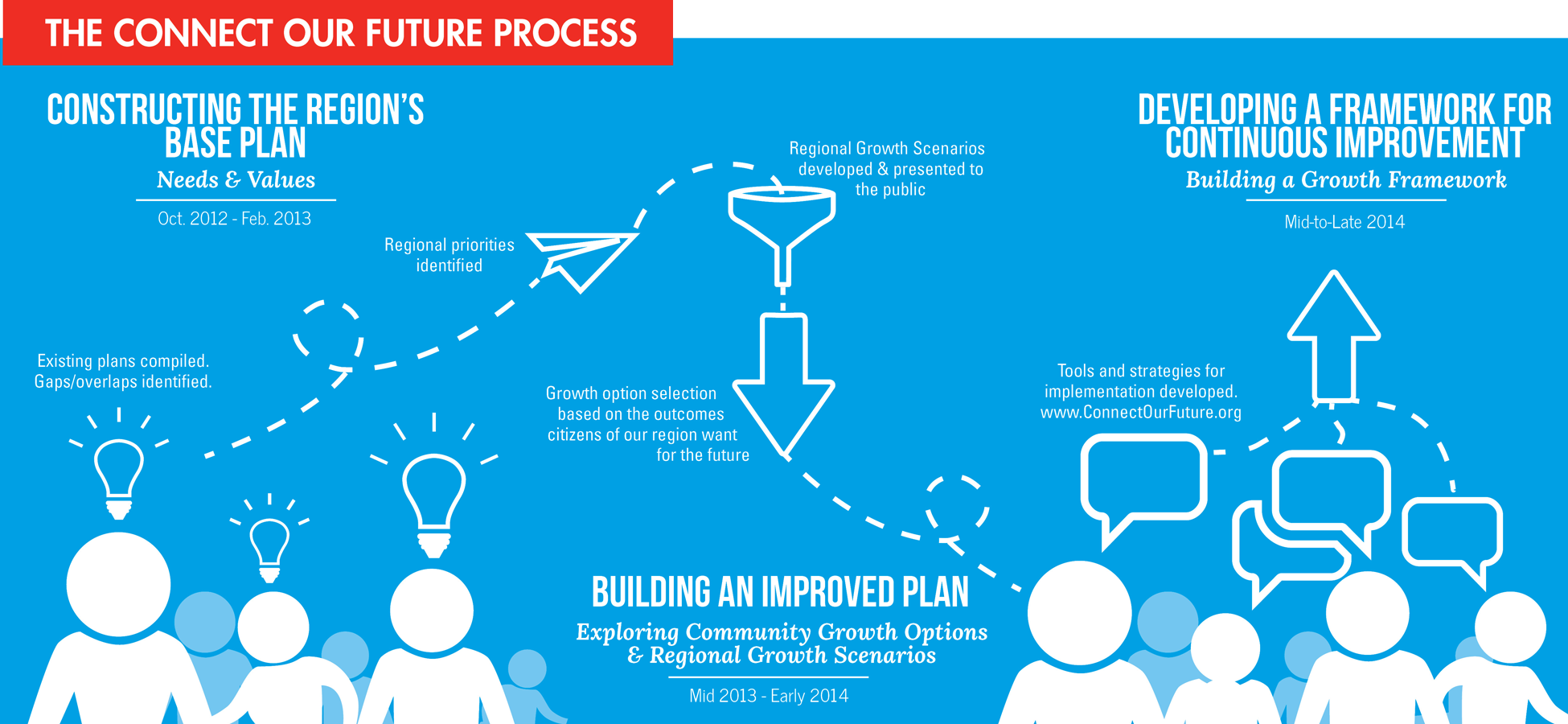CONNECT Our Future was a three‐year process that brings together public, private and nonprofit organizations across our 14‐county region to develop a plan for growth that will help
build jobs and the economy, improve quality of life, and control the cost of government.
CONNECT Our Future is based on, and builds from, the region’s shared vision. In 2005‐2008, the 14‐county bi‐state region came together and developed a vision for the region’s future. That vision has been adopted by the local governments representing more than 70 percent of the population in the region and is being translated into growth options that will produce the results the public wants.

